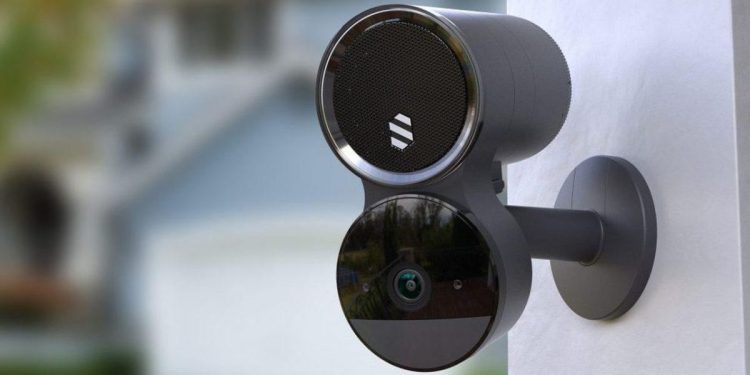Want smarter insights in your inbox? Sign up for our weekly newsletters to get only what matters to enterprise AI, data, and security leaders. Subscribe Now
Next week marks the start of the Consumer Electronics Show (CES), a gigantic exhibition of gadgets, smartphones, tablets, smart speakers, smart displays, security systems, and televisions that’ll define the year to come. CES 2019 promises to be one of the most jam-packed in recent years, with more than 4,500 exhibitors and 180,000 people from 155 countries expected to attend.
Products with artificial intelligence (AI) and machine learning will have an outsized presence. Both IBM CEO Ginni Rometty and LG executive I.P. Park — just two of several keynote speakers at this year’s conference — are expected to talk about the ways AI can transform industries — and lives.
Toward that end, LG in particular has made significant inroads. It recently revealed a second-generation motorized exoskeleton — the LG CLOi SuitBot — that it says can detect when a wearer’s waist is bent below a threshold and automatically apply force, absorbing the load being picked up. In a separate initiative, as part of a pilot program at Incheon International Airport in Seoul, South Korea, LG is testing a fleet of custodial and guide robots that scan boarding passes, offer directions, and tidy up areas in need of frequent cleaning.
In an interview with VentureBeat last year, Park said that such projects “encapsulated” LG’s mission: using AI and innovative technologies to help “everybody.”
AI Scaling Hits Its Limits
Power caps, rising token costs, and inference delays are reshaping enterprise AI. Join our exclusive salon to discover how top teams are:
- Turning energy into a strategic advantage
- Architecting efficient inference for real throughput gains
- Unlocking competitive ROI with sustainable AI systems
Secure your spot to stay ahead: https://bit.ly/4mwGngO
“We’re aiming to create happier, better lives,” he said. “AI is a means to this end.”
Lots of other companies share in that mission. Another CES 2019 exhibitor — Deep Sentinel — this week revealed a home security service that uses a combination of cameras, AI, and motion detection to detect and stop home burglaries. And Segway-Ninebot recently took the wraps off of the Loomo Delivery Robot, an autonomous robot vehicle that can ferry takeout orders, parcels, and other goods from fulfillment hubs to customers’ homes.
Italian company Volta.ai, meanwhile, previewed Mookkie ahead of next week’s show — a smart food bowl that uses a pet-recognizing camera to prevent overfeeding. Currant demoed an intelligent in-wall outlet with AI-driven analysis features that helps to reduce home electrical waste. And CarePredict, a Florida-based health tech startup, peeled back the curtains on its product offering: a wearable device that taps machine learning algorithms to reduce seniors’ falls by 25 percent.
Not everyone’s bullish about AI, to be fair. According to a December survey published by Pew Center Research, 37 percent of technologists believe that most people won’t be better off in the next 10 years as a result of advances in AI and related technologies. They expressed concerns that people might lose control over their lives as AI begins to play a larger role in decision making, and worried about dependency lock-in — i.e., the eroding ability for people to think for themselves — and the destructive capabilities of autonomous weapons, cybercrime, and propaganda.
The Pew Center isn’t the first to surface anxieties about AI. More than 20 percent of respondents to a Deloitte report ranked “cybersecurity vulnerabilities” as a key issue in AI development and adoption, while 43 percent rated “making the wrong strategic decisions based on AI/cognitive recommendations” as among the top three.
Those concerns shouldn’t be discounted. But as I’ve argued before, demonizing or discounting AI does those who might benefit from it a disservice.
Just this week, global nonprofit Resolve took the wraps off of TrailGuard, a machine learning-driven camera designed to prevent poachers from hunting the endangered African elephant, 100 of which are killed each day. And in December 2018, Intel and Hoobox Robotics detailed an AI system that translates facial expressions into movements for motorized wheelchairs, affording paraplegics a degree of autonomy.
I think that MIT physicist and futurist Max Tegmark, who spoke to VentureBeat this past summer in a wide-ranging interview, said it best: “There’s an amazing opportunity to help humanity flourish like never before if we get it right with AI, and that’s why it’s really worth fighting for getting it right. All of today’s greatest problems can be solved with better technology, ultimately. And AI is a crucial part of that.”
For AI coverage, send news tips to Kyle Wiggers and Khari Johnson — and be sure to bookmark our AI Channel.
Thanks for reading,
Kyle Wiggers
AI Staff Writer
P.S. Please enjoy this video from Coding Tech about applying statistical modeling and machine learning to perform time-series forecasting:
https://youtu.be/_DgfjOeK2pc
From VB
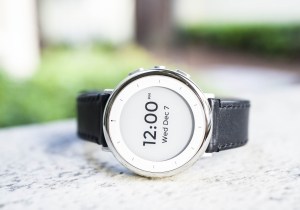
Alphabet’s Verily raises $1 billion to make health care smarter
Alphabet subsidiary Verily revealed that it’s taken on $1 billion in financing led by Silver Lake, which it says it’ll use to fuel global growth.

Researchers at the University of Freiburg have developed an AI system that can design RNA with state-of-the-art speed and accuracy.
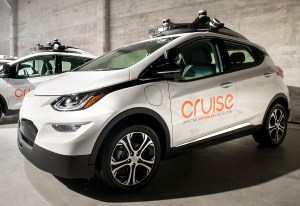
DoorDash and GM’s Cruise team up to pilot food delivery via self-driving cars
GM and DoorDash will enable on-demand food deliveries via driverless cars, with a pilot delivery program kicking off in San Francisco in early 2019.
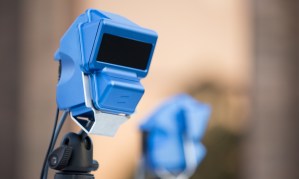
Above: Baraja lidar
Baraja raises $32 million for autonomous vehicle lidar with prism-like optics
Australian lidar startup Baraja has raised $32 million for its autonomous vehicle lidar system that uses prism-like optics and no moving parts.
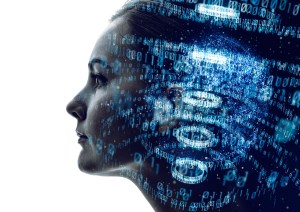
Forbes writers will use AI to pen their rough drafts
Business publisher Forbes is tapping artificial intelligence to help its writers pen rough drafts, a report in Digiday revealed.

Gourmia wants you to say ‘Hey, Google’ to your coffee maker
Brooklyn-based appliance maker Gourmia will showcase kitchen products that work with Amazon’s Alexa and the Google Assistant at CES 2019.
Beyond VB
Artificial intelligence turns brain activity into speech
For many people who are paralyzed and unable to speak, signals of what they’d like to say hide in their brains. No one has been able to decipher those signals directly. But three research teams recently made progress in turning data from electrodes surgically placed on the brain into computer-generated speech. (via Science)
Artificial Intelligence Can Detect Alzheimer’s Disease in Brain Scans Six Years Before a Diagnosis
Using a common type of brain scan, researchers programmed a machine-learning algorithm to diagnose early-stage Alzheimer’s disease about six years before a clinical diagnosis is made — potentially giving doctors a chance to intervene with treatment. (via UCSF)
AI Will Create Millions More Jobs Than It Will Destroy. Here’s How
Some fear that as AI improves, it will supplant workers, creating an ever-growing pool of unemployable humans who cannot compete economically with machines. This concern, while understandable, is unfounded. In fact, AI will be the greatest job engine the world has ever seen. (via SingularityHub)
The Most Amazing Artificial Intelligence Milestones So Far
Artificial Intelligence (AI) is the hot topic of the moment in technology, and the driving force behind most of the big technological breakthroughs of recent years. (via Forbes)
